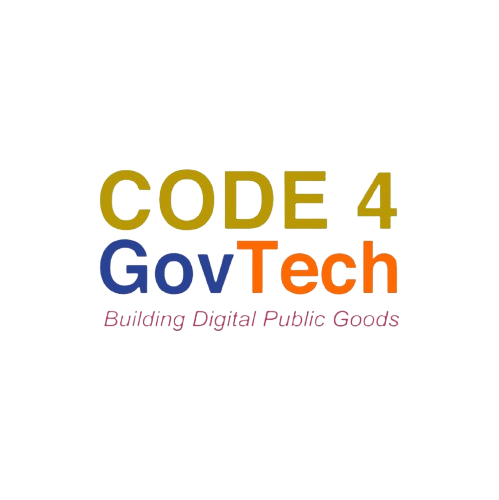Internship Description

EGOVERNMENTS FOUNDATION - OPEN SOURCE GIS TOOL FOR PLANNING OF WATER HARVESTING/RECHARGING ZONES AND APPROPRIATE STRUCTURES IN INDIAN CITIES
Samagra-Code for GovTech
- Virtual Internship
- 23-Apr-2024
- Pan India,
-
Start date
Immediately -
Duration
3 Months -
Stipend
₹33000 /month -
No of Credits
1 -
Apply by
08-May-2024
About the program
The Open Source GIS Tool for Water Harvesting Planning in Indian Cities aims to develop a userfriendly and accessible GIS tool to support sustainable water management in urban areas across India The tool will empower urban planners engineers policymakers and community stakeholders to identify suitable locations for water harvesting and design appropriate structures to harness rainwater effectively By integrating geospatial data and advanced analytical capabilities the tool will facilitate informed decisionmaking optimize water harvesting strategies and promote community participation in water conservation initiatives Emphasizing openness scalability and usercentric design the project seeks to foster collaboration capacity building and policy influence to address water scarcity challenges and promote resilience in Indian cities Goals Enhancing water management in a city Develop a tool that aids urban planners engineers and policymakers in identifying suitable locations for water harvesting and designing appropriate structures to optimize water resource management in Indian cities Pick and choose one small city in India to pilot this tool Gather all the requirements like data satellite images existing GIS tools for analysis etc and create a water rejuvenation plan of a city Increase sustainability in water management Promote sustainable water management practices by facilitating the implementation of rainwater harvesting systems and other water conservation measures at the local level Improving accessibility Ensure the tool is accessible to a wide range of stakeholders including government agencies municipal authorities nongovernmental organizations NGOs and community groups regardless of their technical expertise or financial resources Context invariant and scalable Design the tool to be scalable and adaptable to different urban contexts ranging from smaller NACs to larger municipalities and across diverse geographical and climatic conditions in India UserCentric Design Designing an intuitive and userfriendly interface that facilitates efficient decisionmaking and planning processes related to water harvesting Data Integration Enable seamless integration of various geospatial datasets including topography land use hydrology drainage percolation lithology lineament watershed slope rainfall patterns infrastructure networks and population density to provide comprehensive information for water harvesting planning and analysis GIS tool for governance in increasing the blue infrastructure at a city level The tool gives a view of all the blue grey and green infrastructure and city administrations or ward level governance can be established by using the tool to identify the appropriate zones enhance recharging capacity and incentivize the best locality for doing so Outcomes Identification of Suitable Water Recharging Zones The GIS tool should enable users to identify potential areas for water harvesting structureszones based on factors such as land use terrain slope drainage watershed lineament lithology drainage public infrastructure topography population density and rainfall intensity helping prioritize locations for intervention Optimized Design of Structures Users will be able to design and optimize the layout and specifications of water harvesting structures such as rooftop rainwater harvesting systems check dams percolation pits recharge wells drainage systems and lakes to maximize water yield and efficiency Risk Assessment and Mitigation The tool will facilitate risk assessment and mitigation strategies for water harvesting projects by analyzing factors such as flood risk groundwater contamination and land use conflicts Decision Support Provide decision support tools and scenario analysis capabilities to evaluate the effectiveness of different water harvesting strategies compare alternative scenarios and make informed decisions on investment priorities and resource allocation Acceptance Criteria Functional GIS Tool The GIS tool should be fully functional and capable of performing key tasks like identifying suitable water harvesting zones and designing appropriate structures based on user inputs and geospatial data User Interface The user interface should be intuitive userfriendly and accessible to users with varying levels of technical expertise It should enable users to interact with the tool efficiently and effectively Data Integration Relevant geospatial datasets such as topography land use rainfall patterns and hydrological data etc should be successfully integrated into the tool to support analysis and decisionmaking related to water harvesting planning Accuracy and Reliability The tool should produce accurate and reliable results with minimal errors or discrepancies in the analysis and output generated Documentation Comprehensive documentation including installation instructions user manuals technical specifications and data sources should be provided to guide users in installing configuring and using the GIS tool effectively Testing Thorough testing should be conducted to ensure the functionality reliability and usability of the GIS tool across different operating environments datasets and user scenarios Performance The tool should demonstrate satisfactory performance in terms of speed efficiency and resource utilization even when processing large datasets or complex analysis tasks Feedback Mechanism Mechanisms for receiving feedback from users and stakeholders should be established to gather input on the tools performance usability and effectiveness for continuous improvement Documentation of Process The student should maintain documentation of the development process including design decisions challenges faced solutions implemented and lessons learned throughout the project Out of Scope LargeScale Deployment The projects scope may not include the deployment of the GIS tool on a large scale across multiple cities or regions Customization for Every City Customizing the GIS tool for every Indian city or region may be out of scope The project may focus on developing a generic tool that can be adapted or customized by users based on their specific needs and local conditions User Training Policy Development The project may not involve the development of policy frameworks guidelines or regulations related to water harvesting in Indian cities LongTerm Maintenance and Support While the project may include mechanisms for receiving feedback and making iterative improvements to the GIS tool longterm maintenance and support beyond the duration of the project may be out of scope Although online training resources would be provided and online support community would be nurtured
Perks
1 Lucrative stipend of INR 1 lakh over a period of 3 months 2 Dedicated 1 to 1 mentorship by industry experts 3 Handson experience to hone your skills 4 Access to bootcamps and expert sessions 5 Potential job extended internship opportunities 6 Opportunity to network with global opensource tech leaders
Who can apply?
Only those candidates can apply who:
- are from Any,
- and specialisation from Any,
- are available for duration of 3 Months
- have relevant skills and interests
Terms of Engagement
1 50000 received on completion of midpoint milestone as decided with mentor 2 50000 received on completion of final milestone as decided with mentor 3 Certificate of completion received on successful completion of internship
Number of openings
1

